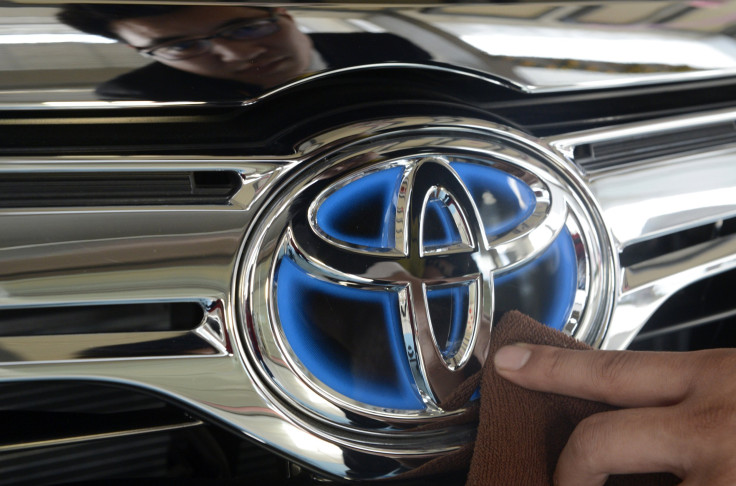Toyota Ends Freeze On Expansion, Looks At Three New Plants

(Reuters) - Toyota Motor Corp is ending a three-year freeze on building new vehicle assembly plants and is looking to open two new assembly plants in China and another in Mexico, four executives familiar with the company's plans said.
The Japanese automaker has already completed initial feasibility studies in both China and Mexico, according to those executives, and “the teams are ready to execute,” as one of them put it. The sources spoke over the last few weeks.
Jim Lentz, head of Toyota’s North American operations, said on Monday that after “a three-year hold” on new capacity investments, the standstill is over for Toyota. Lentz, who spoke on the sidelines of the Detroit auto show, would not comment on specific plans to add production capacity in Mexico or China.
“We’re going to grow again. We will climb the staircase,” he told Reuters in an interview. “But it’s a different way than in the past. It’s not going to be growth for growth’s sake.”
Toyota’s Chinese operations are evaluating plans to build two assembly plants - one in the northeastern city of Changchun and the southern city of Guangzhou where the company already produces cars. In Mexico, Toyota is looking at a site for a passenger car plant in and around the central state of Guanajuato, people familiar with the plans said.
“The only thing we are waiting for is a final green light from the top,” said one of the executives who is a senior manager in China. The situation is more or less the same in Mexico, he said. All four Toyota executives who spoke to Reuters declined to be identified because they are not authorized to speak to reporters.
A renewed expansion drive by Toyota, the world's largest automaker, would put more pressure on rivals, including General Motors Co. and Volkswagen AG, in a global automotive marketplace still burdened by excess capacity.
Immediately after the financial crisis, big automakers were cautious about adding production capacity. Now, with demand in the United States back at pre-recession levels and China's auto market growing, albeit more slowly, automakers are announcing more expansion plans.
CAPACITY CONCERNS
Toyota’s top decision-makers, including President Akio Toyoda, decided earlier this month to lift the three-year freeze on new capacity expansion, people familiar with the decision said. The freeze was supposed to expire at the end of the year ending March 2016.
Toyota spokesman Ryo Sakai said Toyota over the past few years has been focusing on squeezing maximum production from the company’s existing factories around the world, as well as improving quality.
“If demand exceeds capacity after we have exhausted all avenues to maximize the capacity of our existing plants, then we will consider increasing capacity,” Sakai said. “We have made no decisions at this time.”
Toyoda, 58, took charge in 2009 of the company founded nearly 80 years ago by his grandfather. Toyota's decision to lift the expansion ban follows a last-minute review at the end of last year of plans to add new production capacity in Mexico and presumably China. Momentum had been building for a decision last summer on the expansion, but Toyoda then asked the team to "re-examine" the project, the people said.
Toyoda at the time was especially concerned whether the company had exhausted all the existing manufacturing capacity before deciding to add new assemblies.
That agonizing over expansion reflects Toyoda’s fear of repeating mistakes made in the 2000s by the former management team led by his predecessor, Katsuaki Watanabe. That team added more capacity than the company could digest and ended up with excess and under-utilized capacity, an issue compounded by a global economic downturn in 2009.
Company officials cautioned that adding new assembly lines in Mexico and China could be offset as Toyota renovates or closes older factories as part of an overhaul of its production systems.
In Mexico, the new plant would be Toyota’s second. The company already has a pickup truck plant in the northwestern Mexican state of Baja California, capable of producing 63,000 Tacoma vehicles a year, but does not have any capacity for passenger cars.
In China, sales growth has slowed significantly for Toyota in part because of the fallout from a territorial spat that turned Chinese consumers against Japanese goods. But the company still needs new capacity in the medium to longer term as China’s demand for automobiles is expected to expand, the four executives said.
Toyota currently operates a total of eight assembly lines in China and is capable of producing nearly 1 million vehicles a year.
© Copyright IBTimes 2024. All rights reserved.











